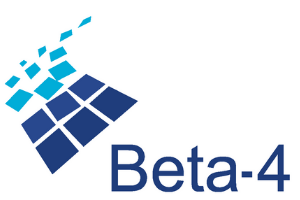Author:
C. E. Kellogg, N. W. Morton
Overview:
A nonverbal measure of cognitive abilities in adults
Age Range:
16:0–99+
Administration:
Paper-and-pencil
Completion Time:
30 minutes
Scores/Interpretation:
Scaled Scores, General IQ Score, Percentile Ranks
Publication Date:
2016
Obtain a quick assessment of adults’ nonverbal intellectual abilities to minimize need for long range skill to assess intelligence. Beta-4 is easy to administer and score and is useful for screening large numbers of people for whom administering comprehensive test batteries would be time-consuming and costly. It is especially useful when assessing low-functioning or low-skilled individuals. Beta-4 can be administered by group or individually.
Beta-4 is the latest revision of an instrument with a long and distinguished history. The original version was developed by the U.S. Army during World War I to assess the intellectual ability of illiterate recruits. In 1934, Kellogg and Morton revised it to make it suitable for civilian use. Beta-4 is an updated version of the Beta-III Examination, Third Edition, published in 1999.
Various Applications
The test has a variety of occupational and educational applications and is great for use with diverse adult populations within a wide range of language skills and intelligence levels. Appropriate uses include prison systems assessing the intellectual ability of inmates, companies evaluating the employment readiness of potential new hires, and vocational schools determining placement of students. Beta-4 is also appropriate for use with ESL individuals, as no reading is required. Administration instructions are available in English and Spanish.
Now Even Easier to Use
This leading adult nonverbal assessment is even better. Professionals familiar with Beta III can administer Beta-4 with minimal training. Technicians, paraprofessionals, and others in the fields of psychology and education can also administer Beta-4 with training and supervision. It is easily hand-scored with a key.
Reliable and Valid
Extensive reliability and validity studies were conducted with Beta-4. The norm sample includes approximately 1,035 adults. Validation data were collected using individuals with specific group samples, including mild/moderate intellectual disability, gifted and talented, corrections, English as a second language, Spanish language speakers and ADHD. The standardization sample was stratified by age, gender, race/ethnicity, educational level, and geographic region according to 2014 census data.
Beta-4 was validated using other well-known tests, including the Beta III, WAIS®-IV, Wechsler Fundamentals Academic Skills.
Features & Benefits
Beta-4 features:
- New norms
- Updated and contemporary artwork
- New items
- Extended (upward) age range
- Low floors for individuals with average and lower cognitive abilities
- High ceiling with more challenging items
- Simplified and streamlined instructions to make it easier for individual administration or proctoring in group settings
Areas of Assessment
The five subtests are:
- Coding
- Picture Completion
- Clerical Checking
- Picture Absurdities
- Matrix Reasoning
Pre-recorded Webinars
-
Introducing the Beta-4
Presenter: Anne-Marie Kimbell, PhD
This webinar will provide an introduction to the Beta–4, a non-verbal measure of cognitive ability in adults. Beta–4 comes from a long line of nonverbal assessments that have been used and trusted by psychologists and counselors since 1934. It is very simple to administer and score with minimal training in a one-on-one or proctored group setting with either English or Spanish instructions, and does not require the test-taker to read. The Beta–4 is tailored toward those suspected to be low-functioning and low-skilled.
Date: Jun 29, 2016
 PDF: Introducing the Beta-4
PDF: Introducing the Beta-4
 Video: Introducing the Beta-4
Video: Introducing the Beta-4





